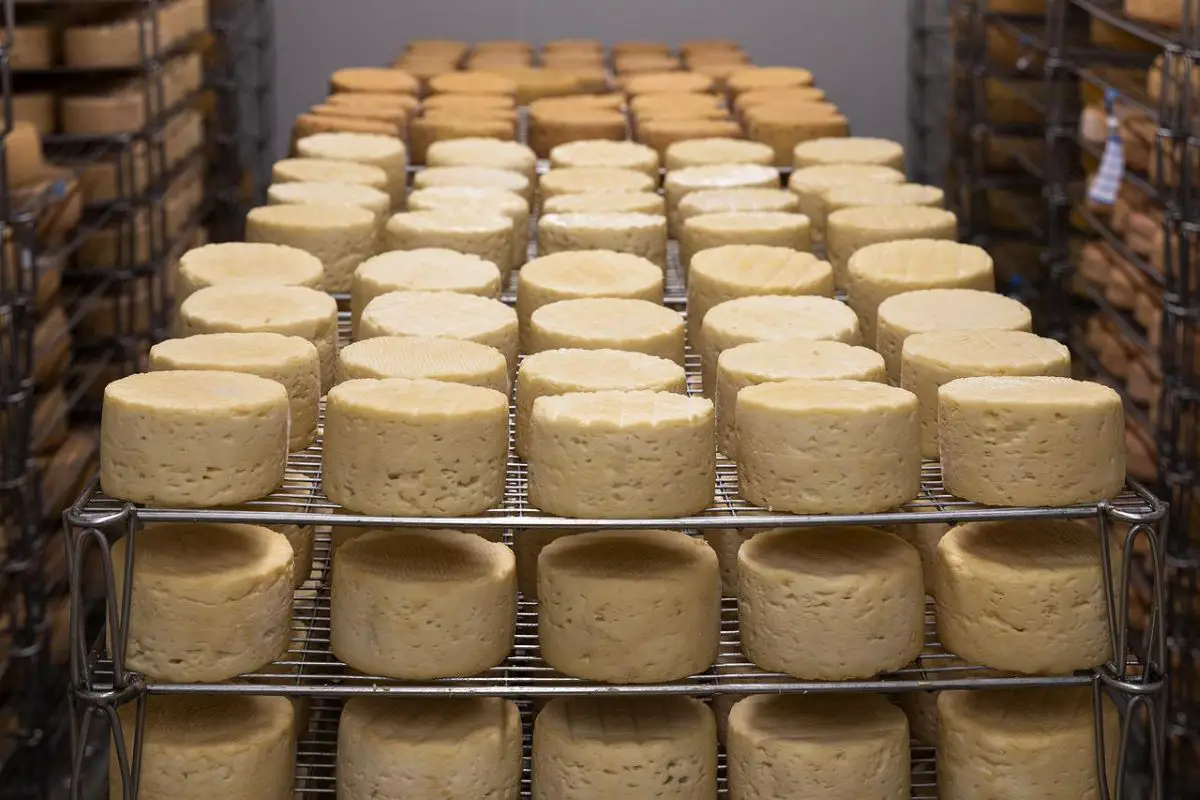If you love cheese, you may be wondering how long it can last in the fridge. The answer depends on whether it’s fresh or aged, and whether it’s hard or soft.
Fresh cheeses like mozzarella and cottage cheese are best enjoyed within a week of buying. If you can’t eat them all before then, wrap them tightly in plastic wrap and store them in a sealed container.
Aged cheeses like Parmesan and cheddar should last for about two weeks when stored properly. Again, wrap well and use an airtight container to prevent moisture from getting in.
Hard cheeses like Swiss and Parmesan will last much longer than soft ones like Brie—they can last up to four months without refrigeration if they’re kept wrapped tightly and stored at 40 degrees Fahrenheit or below.
Which Cheese Has the Longest Shelf Life After Opening?
Most people check how long does cheese last in the fridge and which last longest. American cheese has a shelf life of around two months after opening. It can be stored in the refrigerator for this period of time, and it’s best to keep it wrapped in plastic wrap or sealed in a container so that it doesn’t dry out.
American cheese is not technically a “cheese” in the traditional sense—it’s made from a combination of milk, vinegar, salt, and other ingredients. However, it has been allowed to use the word “cheese” on its label because of its texture and appearance.
How To Check If Cheese Is Safe To Eat?
Before you check how long does cheese last in the fridge, you should know how to check cheese. Cheese is a delicious, versatile food that can be enjoyed in many ways. However, you should know how to tell if cheese is safe to eat or not.
You’ll want to check for mold on the surface of your cheese before you decide whether or not it’s still good to eat; throw out the cheese immediately if you see any signed of mold!
If there are no signs of mold on the surface, you should smell the cheese. Throw it away if it smells sour or rancid. If the cheese doesn’t have any signs of mold and doesn’t smell sour or rancid, it should be fine to eat.
What Happens If You Consume Spoilt Cheese?
If you don’t know how long does cheese last in the fridge, you won’t realize you’re eating spoiled cheese. Eating spoiled cheese can cause a wide range of symptoms and illnesses, including nausea, vomiting, diarrhea, and even an allergic reaction.
The severity of these symptoms depends on the type of bacteria that has grown in the cheese. For example, Listeria monocytogenes grows in soft cheeses and can cause listeriosis—a serious infection that can lead to meningitis or encephalitis. However, most types of foodborne illness caused by spoiled cheese are usually not serious. If you believe you have become ill after consuming spoiled cheese, see your doctor immediately!
What Is the Best Way To Store Cheese To Avoid It From Going Bad?
There are many ways to keep cheese from going bad. The best way is to store it in the refrigerator at 40 degrees Fahrenheit or below. Storing cheese in this temperature can help prevent mold and other harmful bacteria from growing on the surface of the cheese and making it go bad.
Cheese can also be stored in the freezer, but this method is not recommended because freezing may change the texture of some cheeses. Freezing also increases the risk of freezer burn, which causes a white coating on some cheeses that has an off-putting taste and texture.
If you choose not to freeze your cheese, there are several ways to keep it fresh longer:
1. Wrap your cheese tightly with plastic wrap before storing it in an airtight container. The plastic wrap will help keep out moisture and keep the cheese from drying out too quickly; however, do not wrap your cheese so tightly that no air can get through because this will allow mold growth inside your refrigerator or freezer!
2. Place your wrapped cheese on a plate covered with wax paper before putting it into an airtight container (such as Tupperware). This helps prevent moisture from getting trapped between two layers of plastic wrap which could cause mold growth inside your refrigerator or freezer!
Can Lactose Intolerant People Eat Cheese?
Lactose intolerance is a condition in which a person has trouble digesting lactose, the sugar found in dairy products. Lactose intolerance can cause indigestion, bloating, gas, and diarrhea. Dairy products that have had the lactose removed include lactose-free milk and yogurt. These products are widely available in grocery stores.
Cheese is not considered to be a dairy product because it does not contain any milk solids or lactose. Therefore, people with lactose intolerance can eat cheese without experiencing any of the symptoms associated with lactose intolerance.
Conclusion
This article revealed some of the most important details regarding the shelf life of cheese. By knowing the facts, you can enjoy a wide variety of cheeses and not have to worry about eating something spoiled!
In summary, hard cheese lasts longer because it has a natural rind that protects the inside from any surface bacterial growth. If you are planning to store your cheese in the fridge, then be sure it’s tightly wrapped or placed on a non-porous surface so that no air can get to it (like plastic wrap over a shredded block of mozzarella).
You May Like These Articles As Well:
 Being Human
Being Human




